Welcome
to the official website of the project Country to City Bridge.
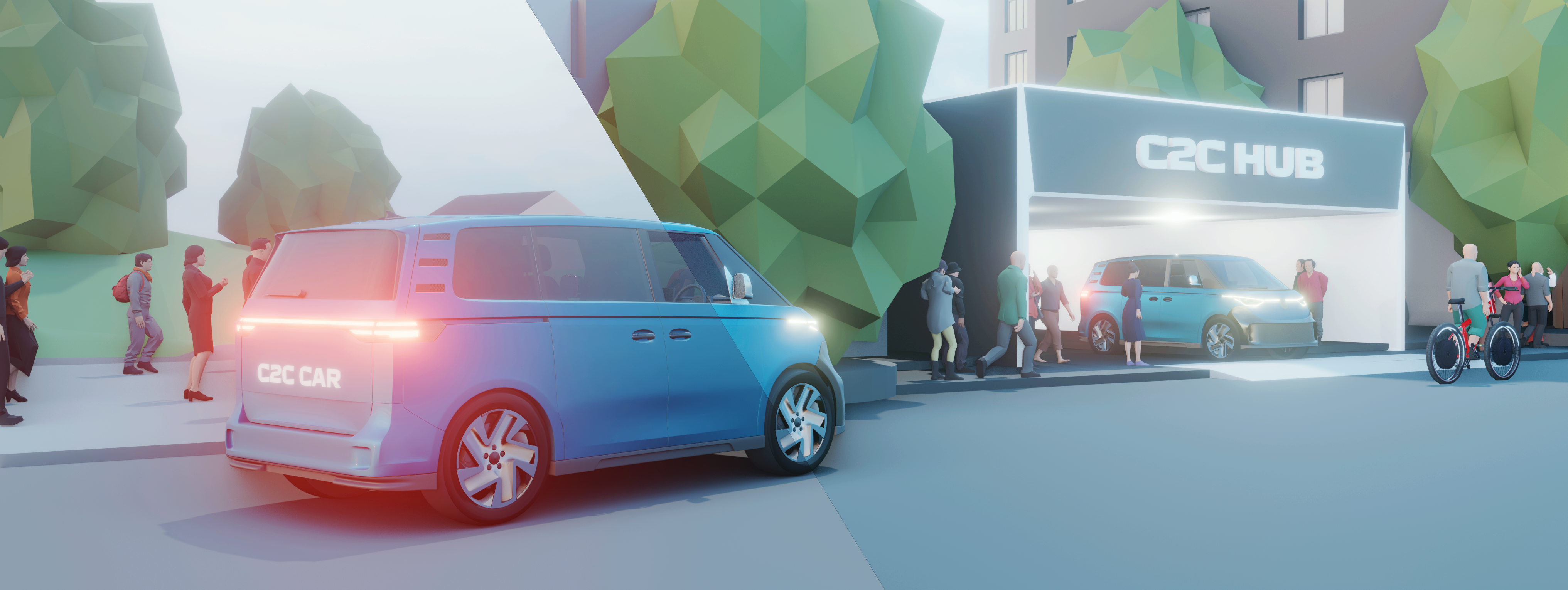
Keep yourself informed:
Here you will find information about the progress of the project, exciting news, and the latest results.
Click on the images to find out more.
Motivation and goals of the project.
According to the “Mobility in Germany” study, the average number of people in a car for daily commuting is currently only 1.1, with correspondingly high space and energy requirements, as well as the resulting CO2 emissions per person and the high volume of commuter traffic. In particular, there is a large gap between urban and rural areas, for which there often seems to be no viable alternative to the private car. The C2CBridge project therefore explores alternatives to the private car to connect urban and rural areas as a complement to existing public transport services.
The goal of the project is to research an attractive mobility service with high social acceptance as an alternative to the private car for connecting rural areas with the city, based on new automated vehicle concepts and their networked operation in a ride-pooling fleet. Autonomous on-demand shared taxis in rural areas will provide a service that enables passengers to reach their destination efficiently, cost effectively and on demand. They will be designed to carry up to four people, wheelchairs, strollers and luggage. At mobility stations on the outskirts of the city, passengers will be able to transfer to conventional public transport or other alternative means of transport, such as rental bicycles. In addition, the vehicles should be able to travel in platoons in dense traffic to take up less space while improving safety and efficiency. This accessible and demand-driven mobility service will better connect rural areas to the city and existing public transport services.
Motivation
Our solution
Our solution
Goals
The first project, Country to City Bridge 1 – Analysis and Functional Solution Concepts, focuses on analysing the existing transport system, mobility behaviour and mobility needs in order to design the new mobility offer and the individual elements such as vehicles and transfer stations. The C2CBridge 1 project runs from January 2024 to December 2026 and is funded by the German Federal Ministry for Transport (BMV) as part of the German Center for Future Mobility (DZM) with a total of €12.3 million. In addition to the Karlsruhe Institute of Technology and the Karlsruhe University of Applied Sciences, the FZI Research Center for Information Technology and the Fraunhofer-Gesellschaft zur Förderung der angewandten Forschung e. V. are involved in the project.
The second project, Country to City Bridge 2 – Testing and Evaluation of the Concepts, focuses on the implementation of the developed concepts with the conversion and autonomisation of vehicles and the design of interior concepts as well as the construction of a transfer station and digital twins and the validation of the developed mobility system. The C2CBridge 2 project runs from August 2024 to July 2027 and is funded by the German Federal Ministry for Transport (BMV) as part of the German Center for Future Mobility (DZM) with a total of € 12.7 million.
The two sub-projects.
The two sub-projects.
The first project, Country to City Bridge 1 – Analysis and Functional Solution Concepts, focuses on analysing the existing transport system, mobility behaviour and mobility needs in order to design the new mobility offer and the individual elements such as vehicles and transfer stations. The C2CBridge 1 project runs from January 2024 to December 2026 and is funded by the German Federal Ministry for Transport (BMV) as part of the German Center for Future Mobility (DZM) with a total of €12.3 million. In addition to the Karlsruhe Institute of Technology and the Karlsruhe University of Applied Sciences, the FZI Research Center for Information Technology and the Fraunhofer-Gesellschaft zur Förderung der angewandten Forschung e. V. are involved in the project.
The second project, Country to City Bridge 2 – Testing and Evaluation of the Concepts, focuses on the implementation of the developed concepts with the conversion and autonomisation of vehicles and the design of interior concepts as well as the construction of a transfer station and digital twins and the validation of the developed mobility system. The C2CBridge 2 project runs from August 2024 to July 2027 and is funded by the German Federal Ministry for Transport (BMV) as part of the German Center for Future Mobility (DZM) with a total of € 12.7 million.
German Center for Future Mobility.
The C2CBridge project is embedded in the German Center for Future Mobility (DZM), which, with its four locations in Hamburg, Annaberg-Buchholz, Minden and Karlsruhe, is establishing a nationwide research network and pooling expertise in mobility research. During the course of the project and beyond, the locations will network through a series of events. These will serve to promote communication in the political, economic and social spheres as well as cooperation between the locations. Annual rolling conferences, seminars and winter schools will bring together researchers from the sites. Ongoing coordination between the projects at working and management level creates synergies and allows the transferability of project results to be advanced.
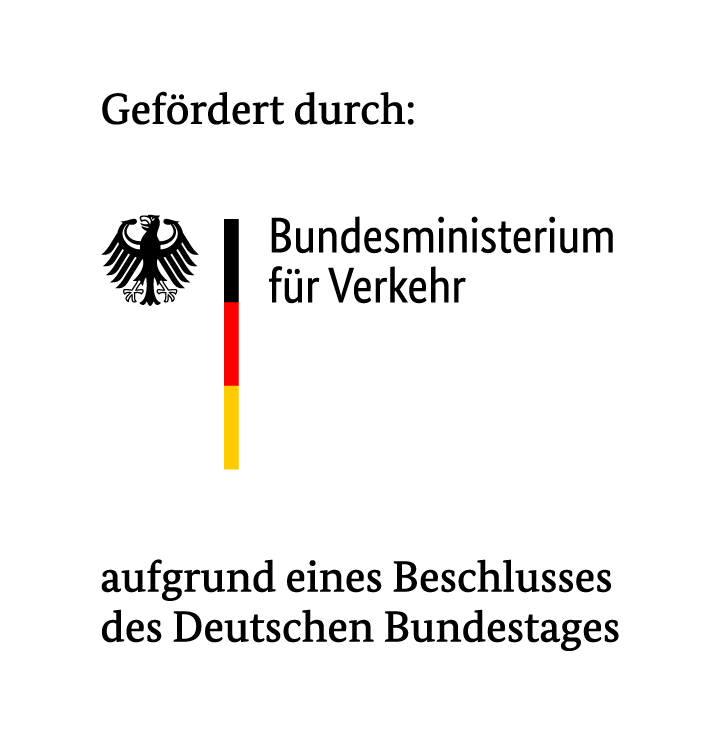
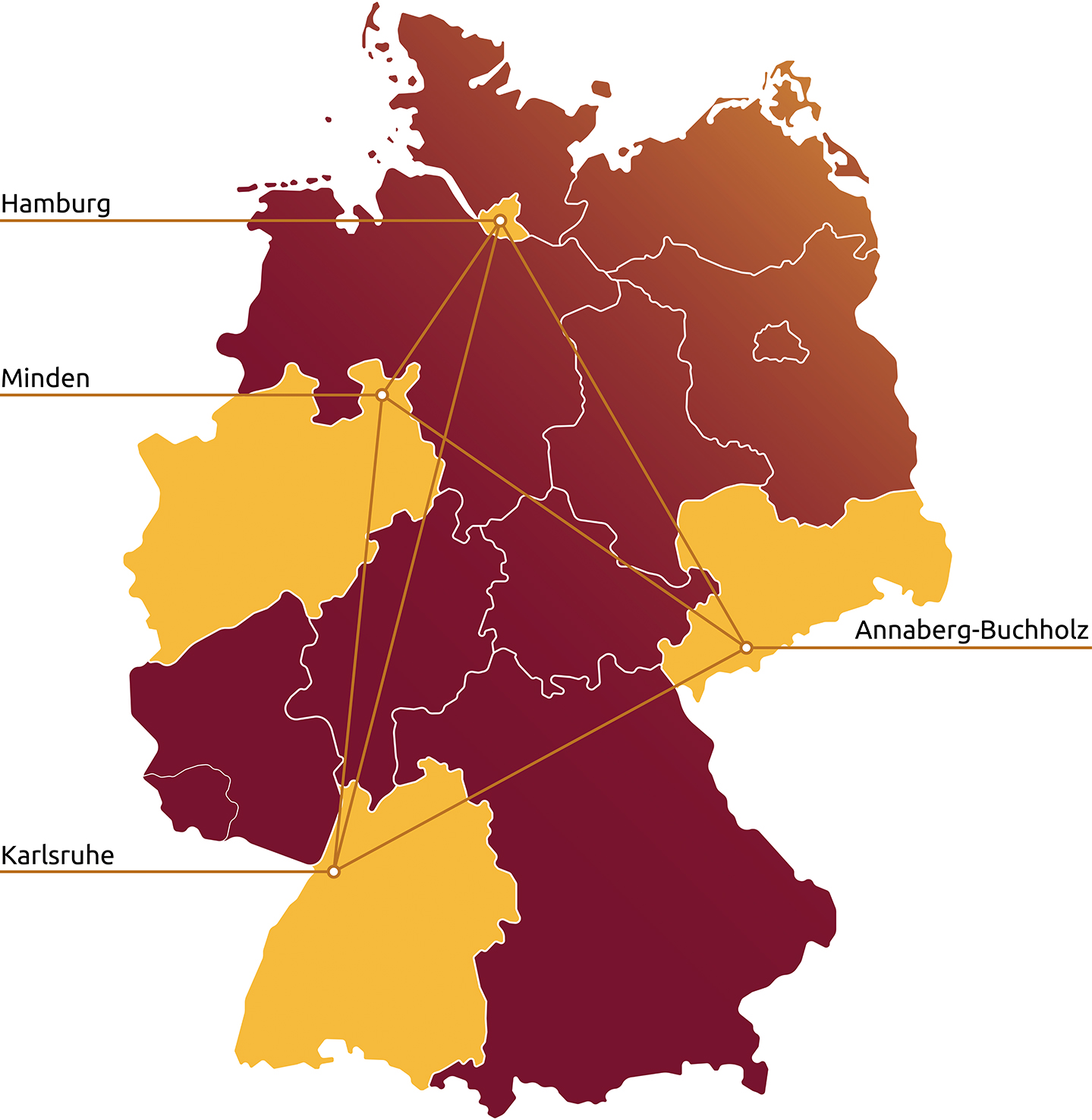


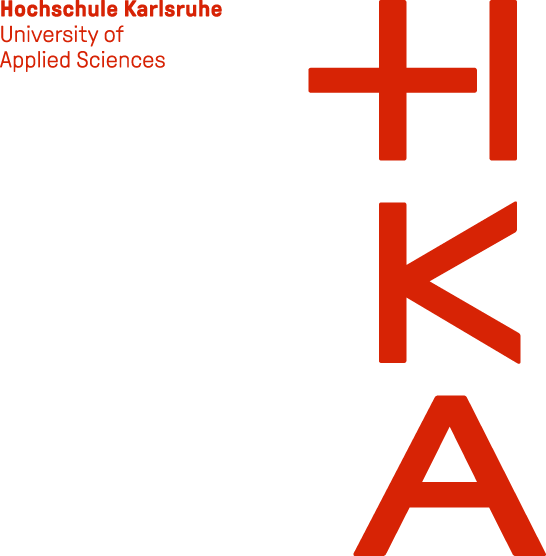
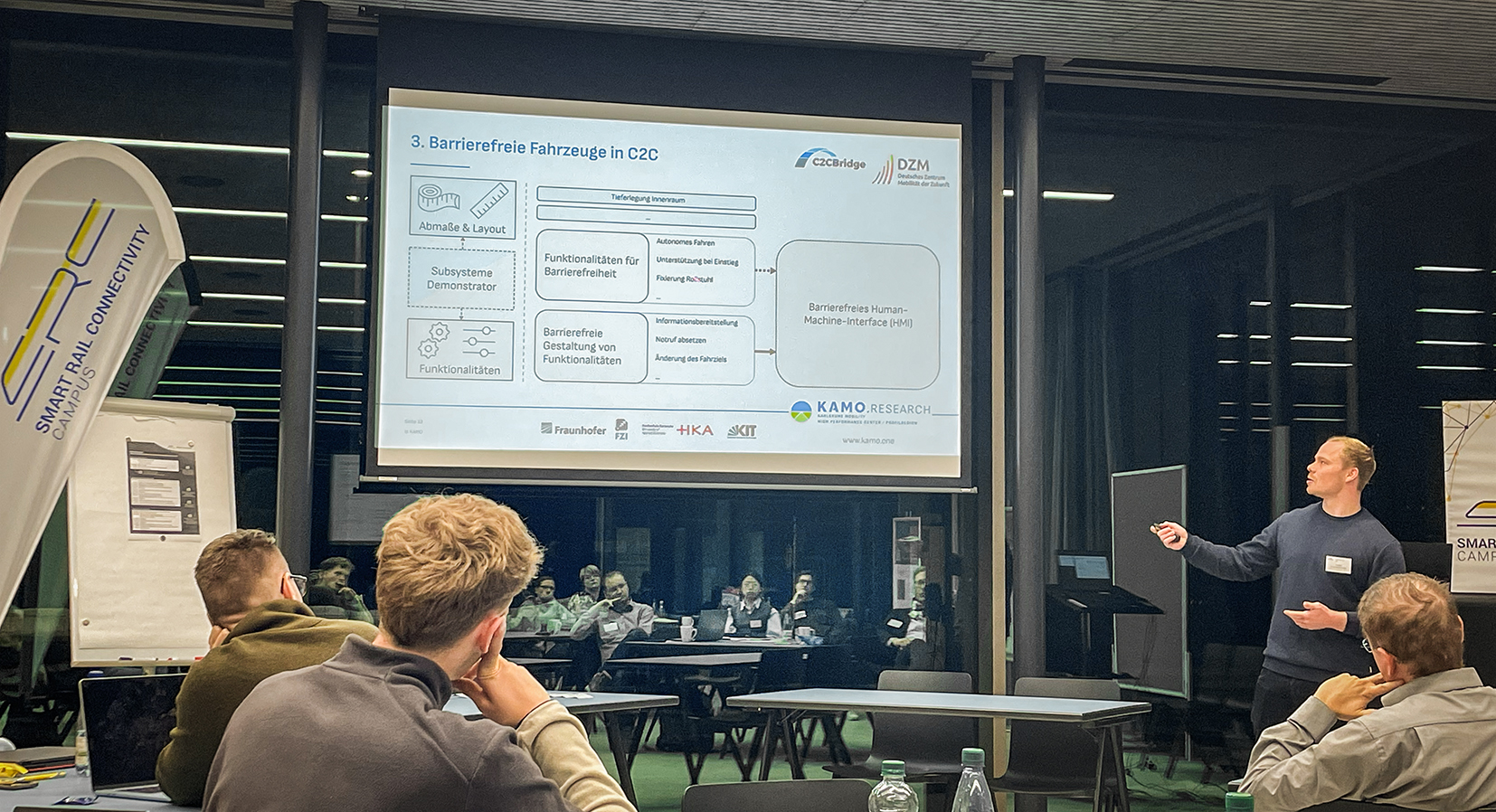

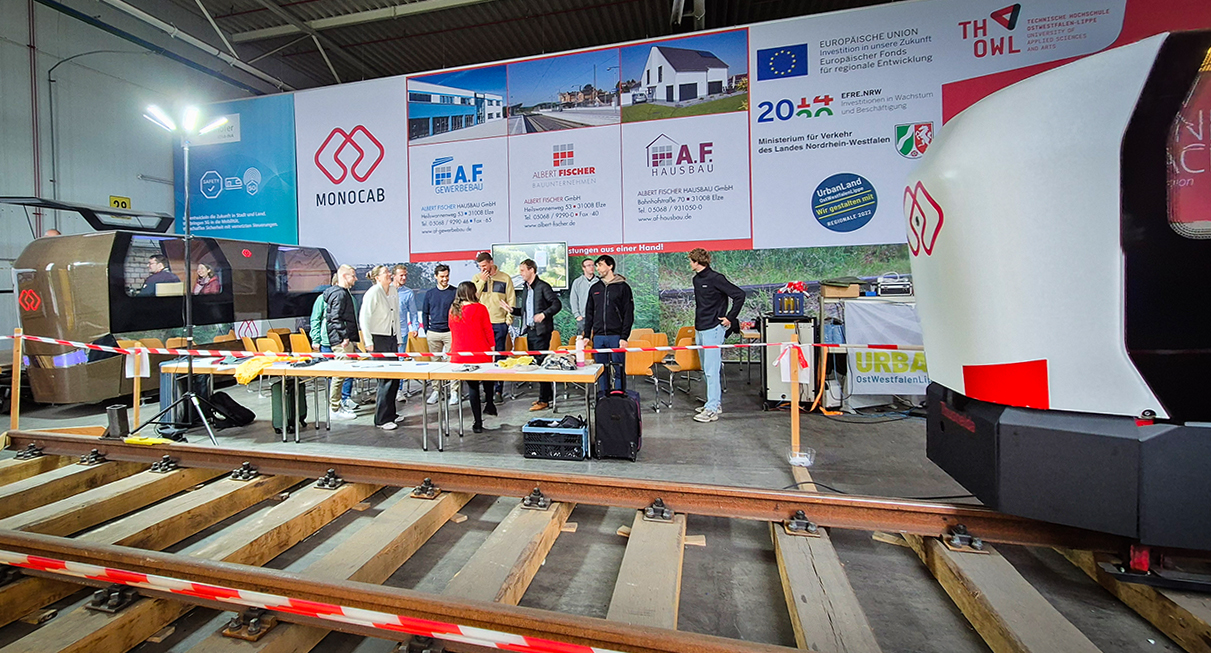
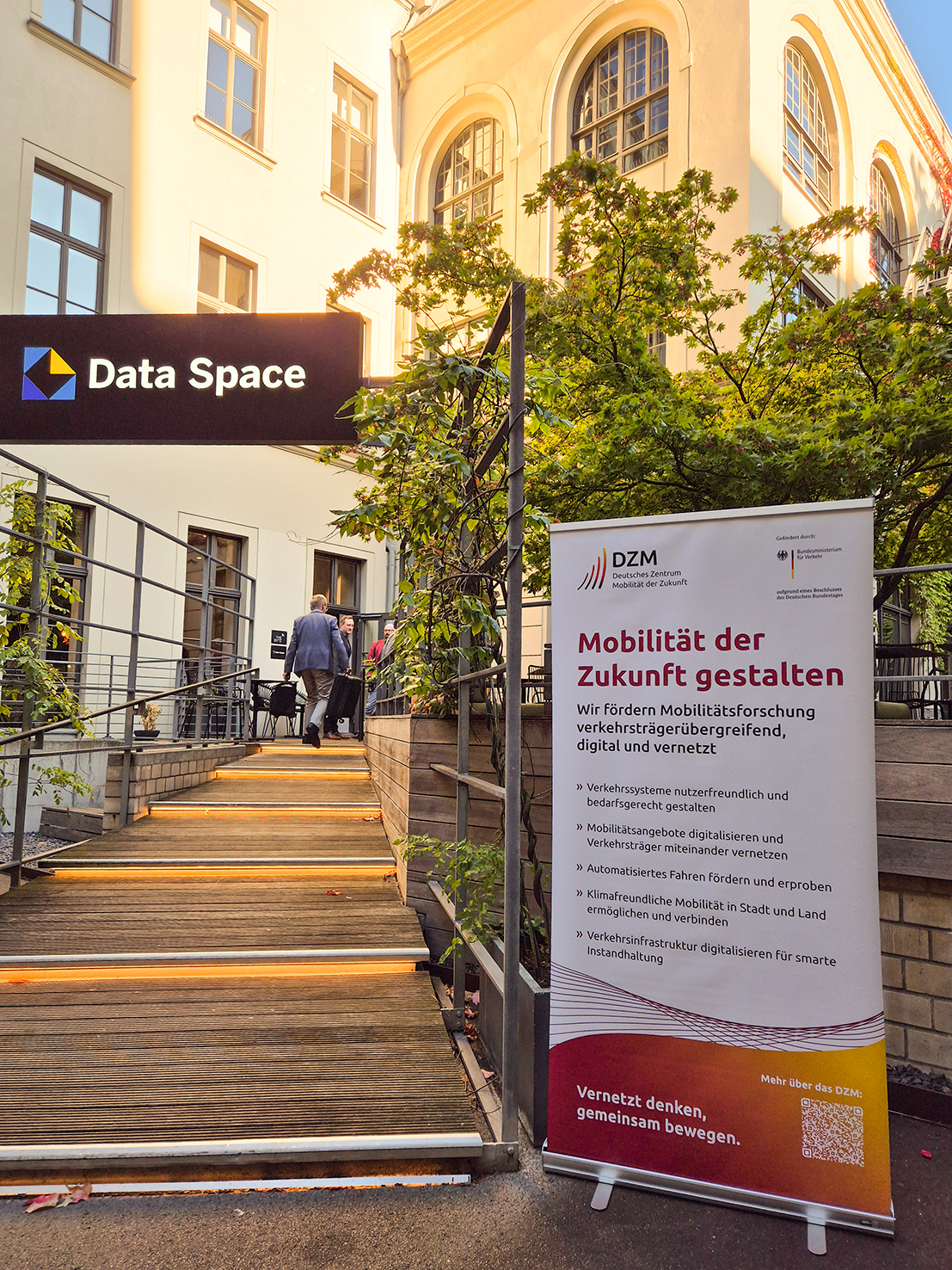
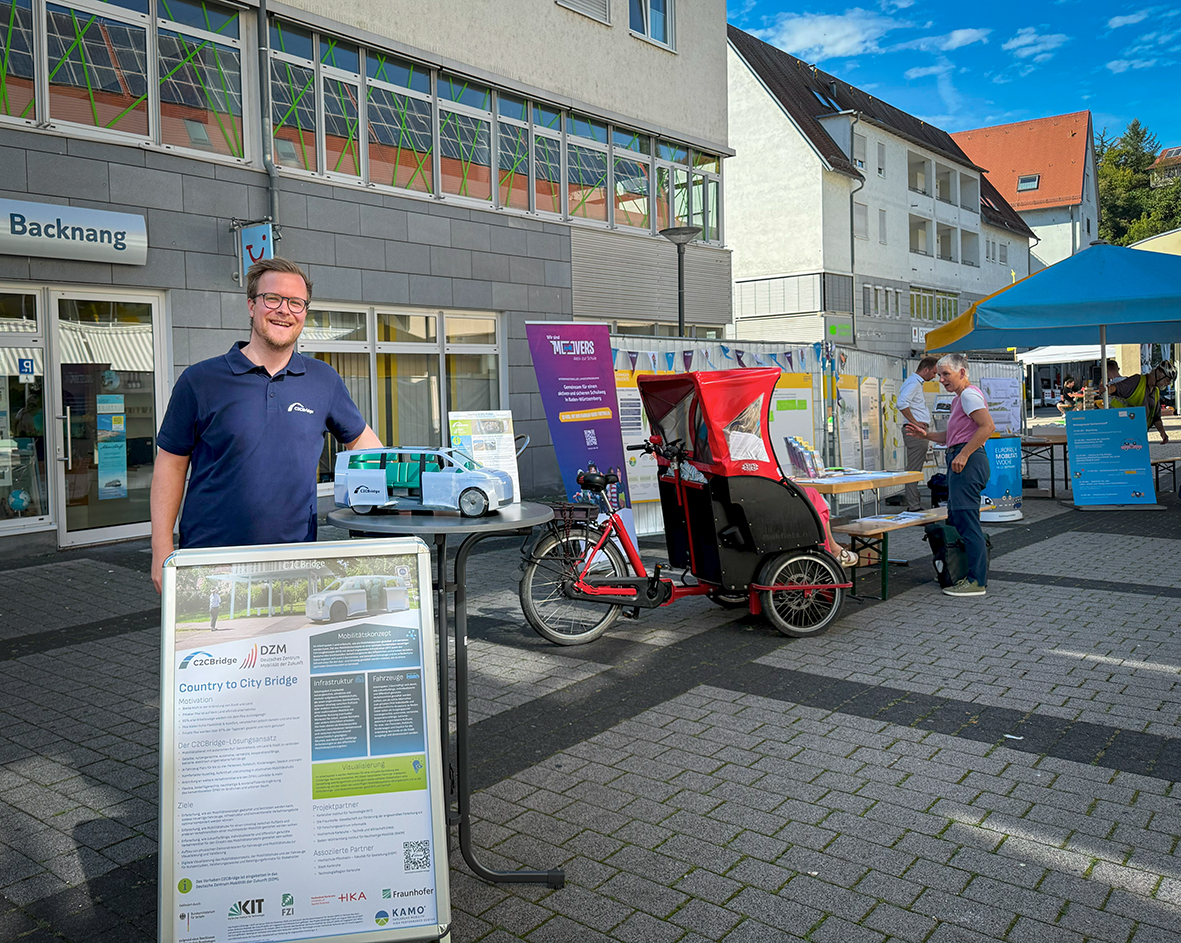
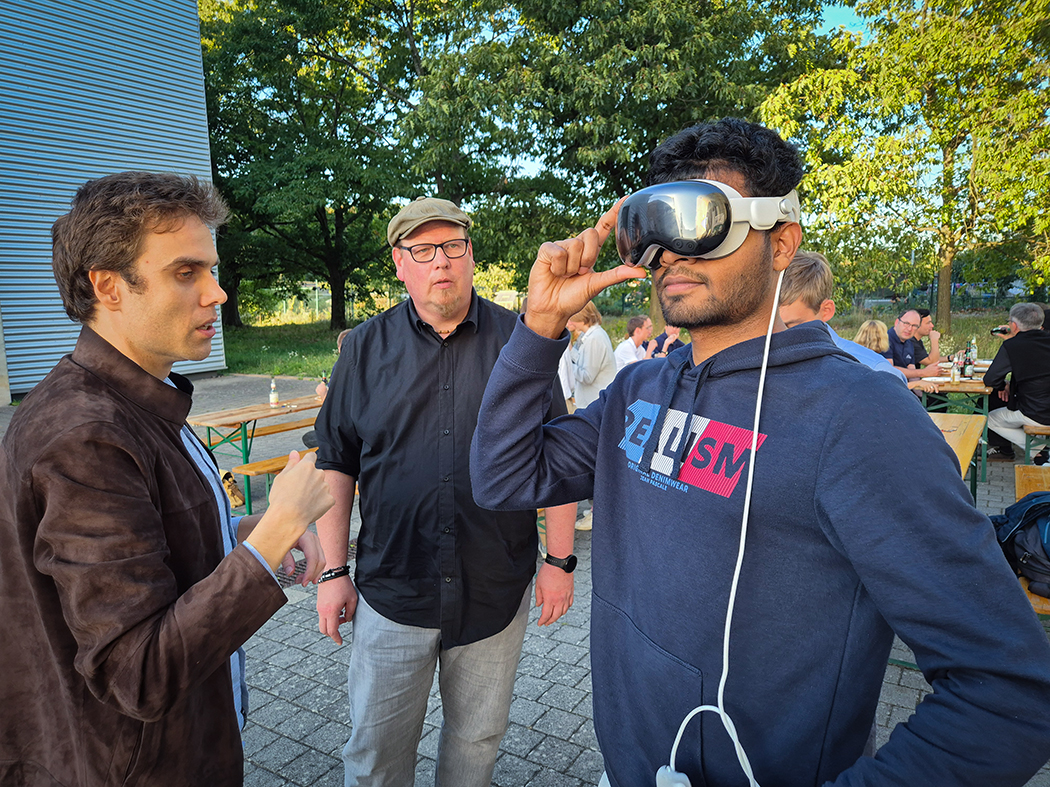
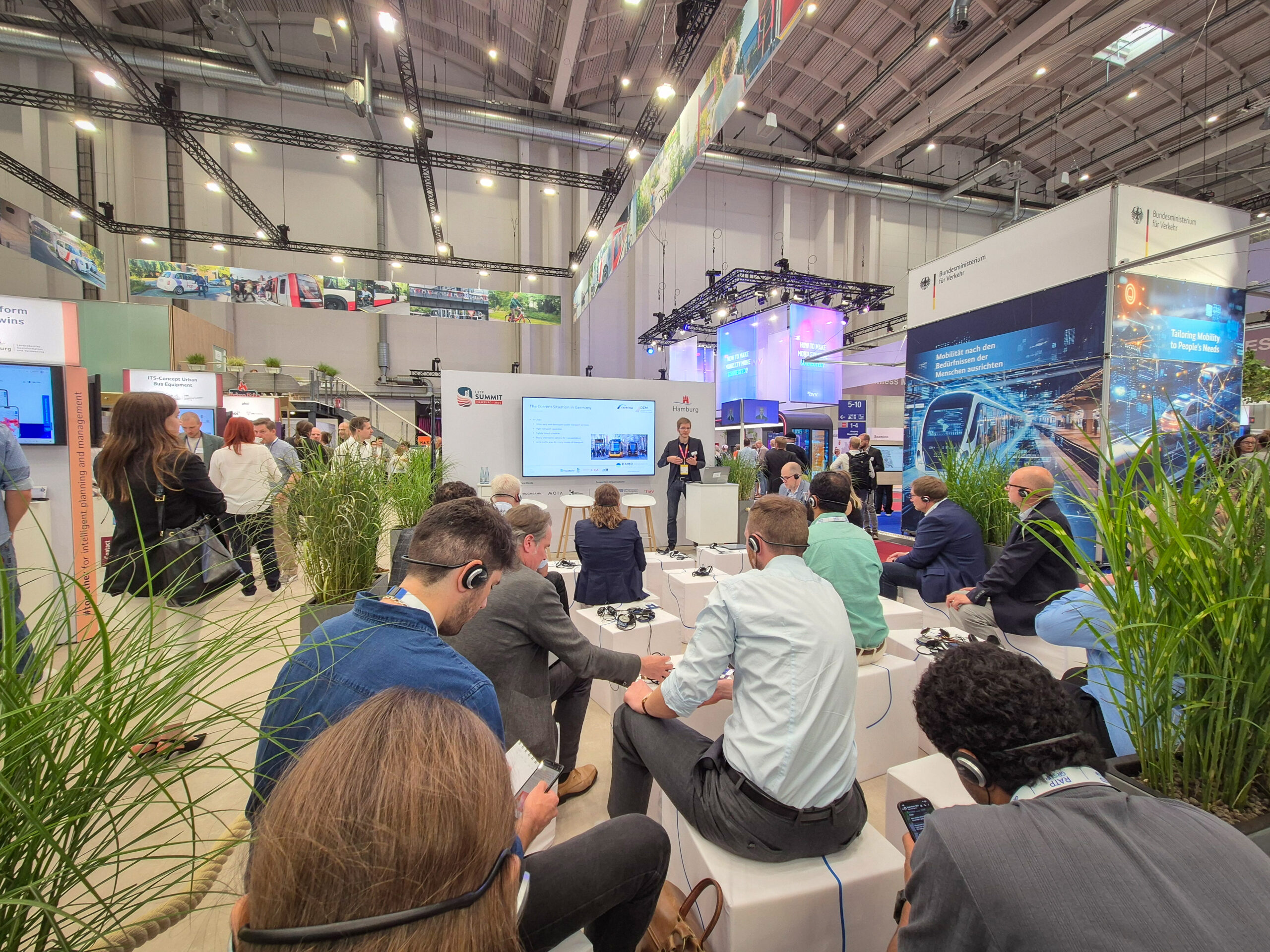
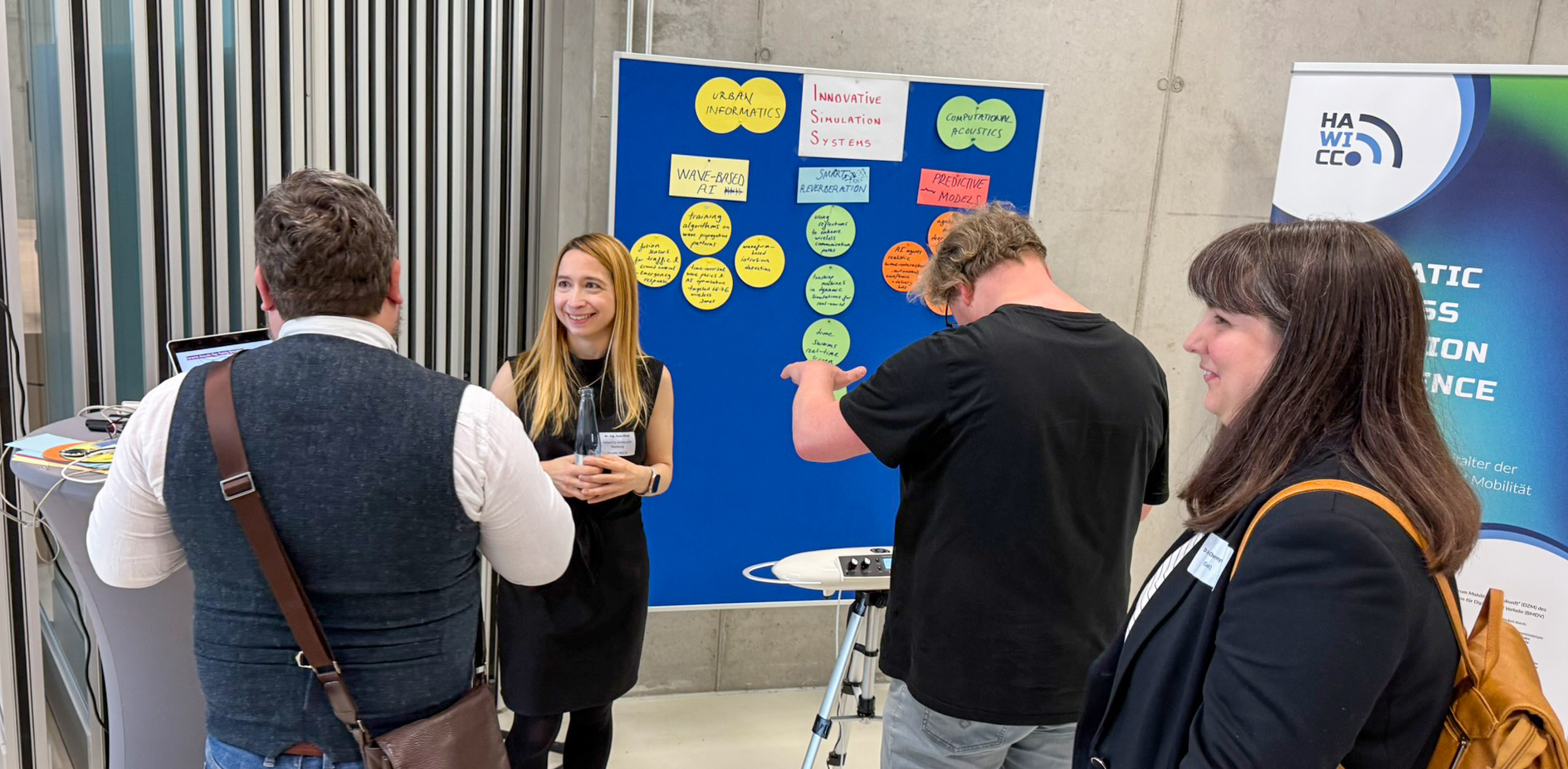
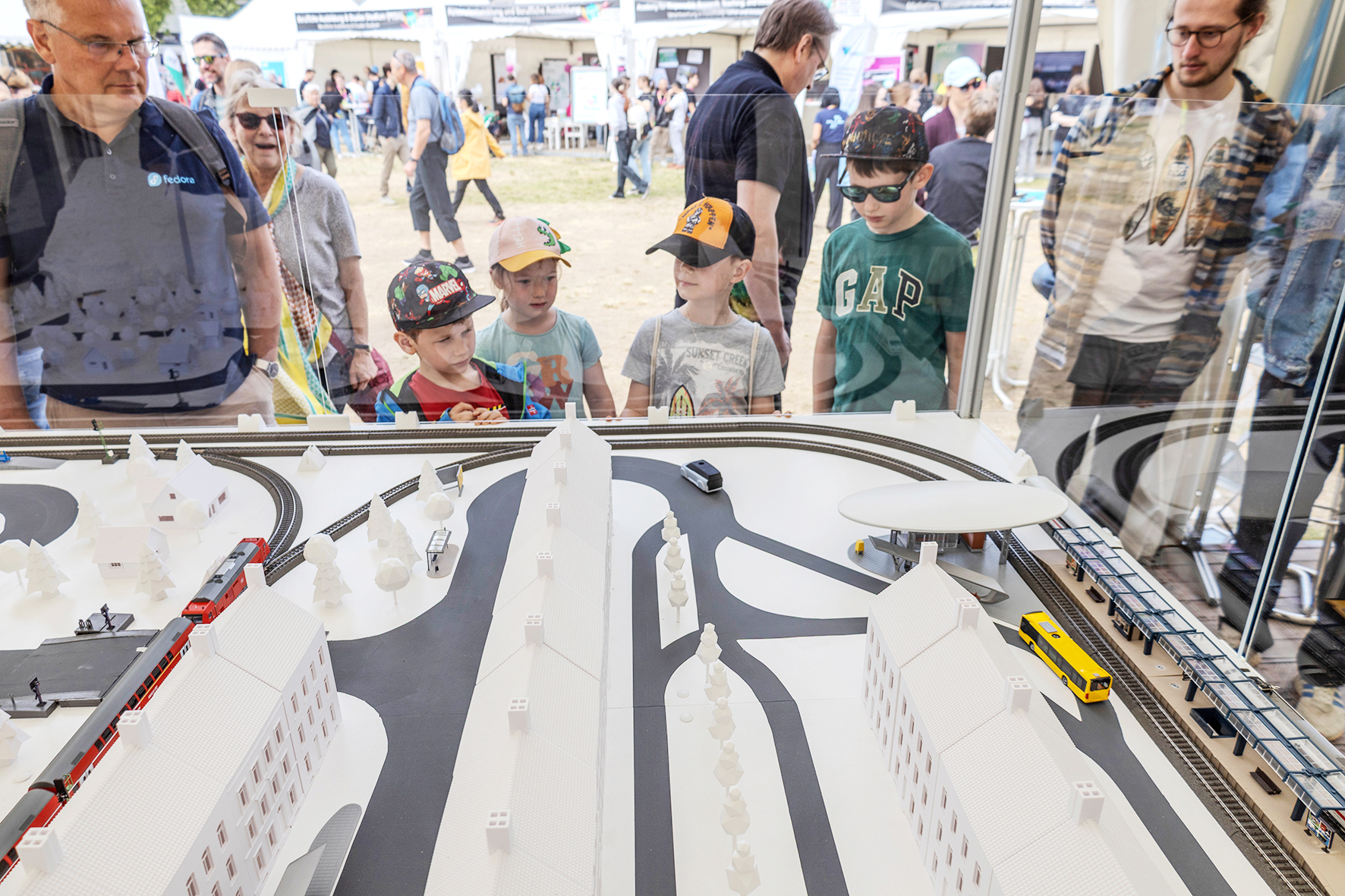
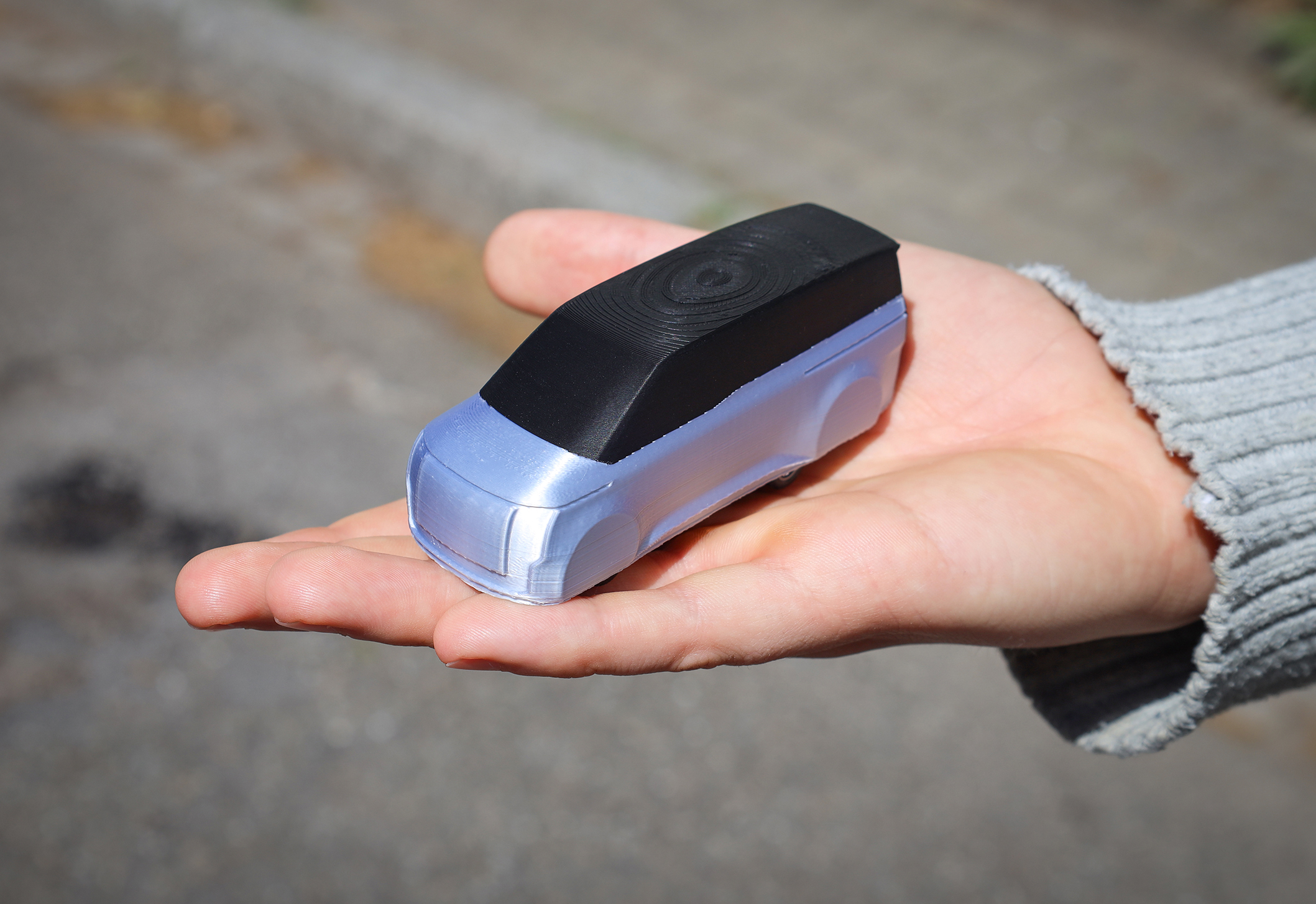
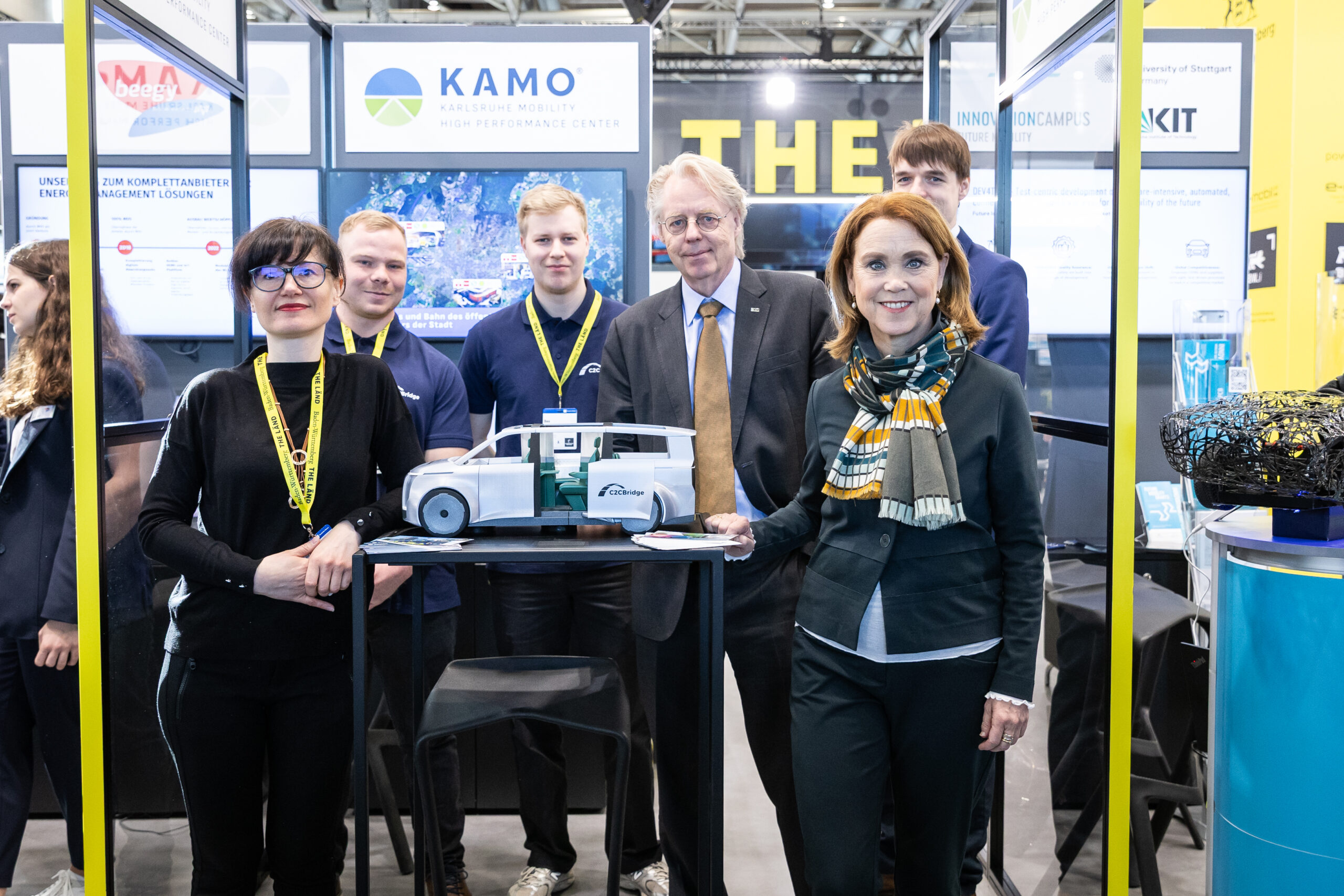

Stay In Touch